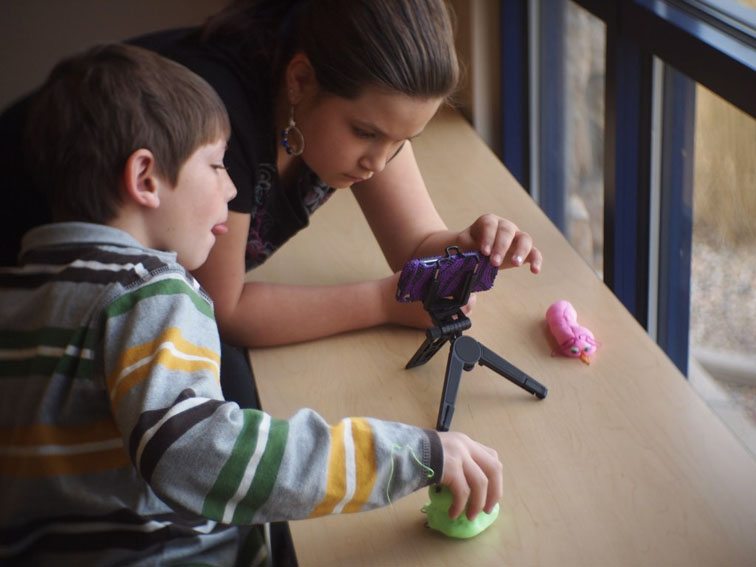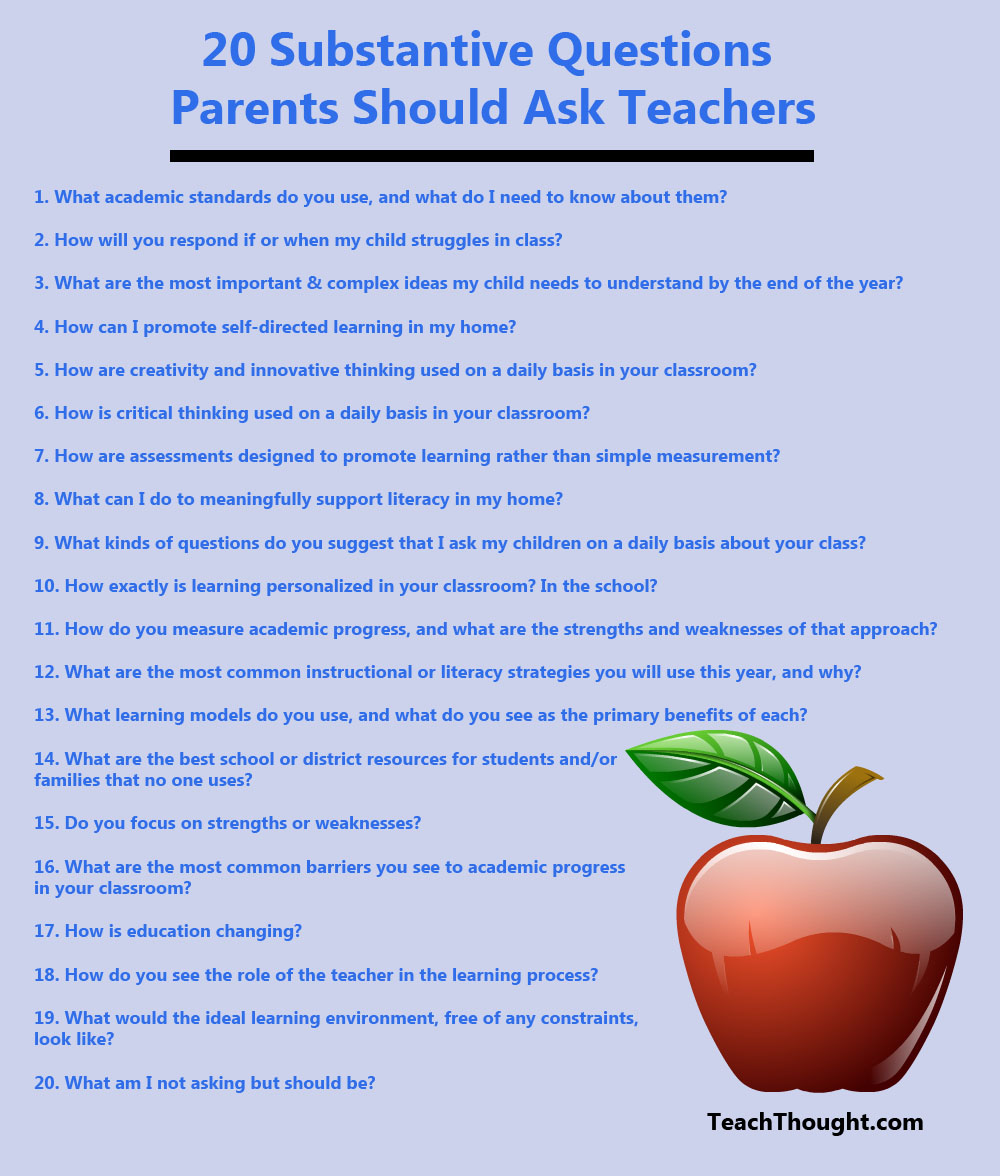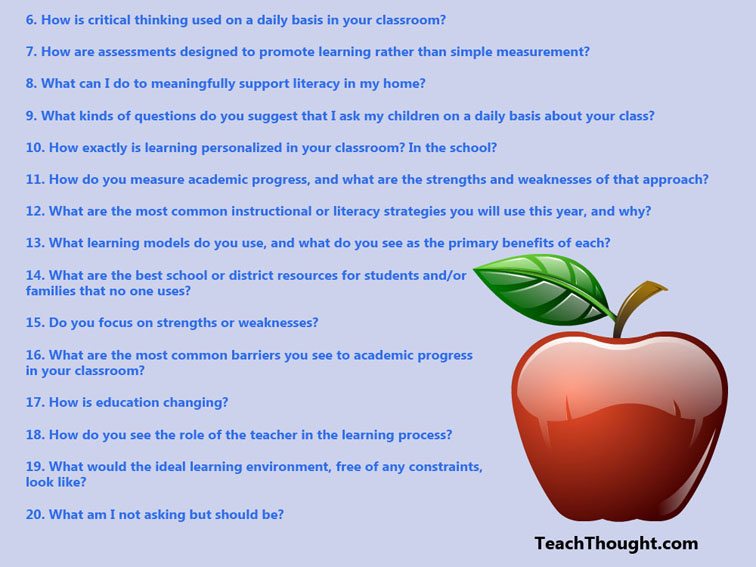
What Questions Should Parents Ask Teachers About Their Child’s Education?
by Terry Heick
The ultimate support system is not an expert teacher but an informed and supportive family.
One of the most significant challenges facing formal education in the United States is the chasm separating schools and communities. The more informed a family is, the more seamlessly they’ll connect to so many other edu-constructs, from extracurricular activities and tutoring to reading programs and school-related events.
While schools (hopefully) work to update themselves and the way students learn within them, many parents have to work with what’s available to them. With the exception of in-depth content, much of the ‘parent stuff’ you’ll find through Googling is decent enough, but it can be surface level or otherwise completely unrelated to process of learning. Some common examples:
Ask them what they did in school today.
Help them with homework.
Help them stay organized.
Help young children with discipline and separation anxiety and older students with motivation and focus.
Talk to them about ‘staying positive’ and demonstrating work ethic.
Get them a tutor.
But these kind of topical interactions aren’t always enough, nor do they do anything at all to create transparency between schools and communities.
So, in pursuit of that transparency, below are some questions parents ideally would be asking you to better clarify what’s happening in the classroom. Armed with some kind of answer–even a basic one–parents can then decide which non-superficial actions they can impart to truly support the learning of their child.
Many of the questions may seem a bit direct or even ‘passive aggressive,’ but in the right context and with a tone of collaboration and concern for the child, I don’t know a teacher who would take offense to any. The big issue is that these kinds of conversations are rarely had but should be and that’s the idea: shifting the conversation in education from grades and passing to knowledge and purpose.
Until parents have a better understanding of what pure academic work looks like–from the content to the assessment to the reporting–every single bit of this is on the shoulders of teachers. Your shoulders, then.
20 Questions Parents Should Ask Teachers

20 Important Questions Parents Should Ask Teachers
What are they learning and what do I need to know about what they’re learning? What ‘standards’ do you use and what do I need to know about them?
How will you respond if or when my child struggles in class and how can I help at home?
What are the most important and complex (content-related) ideas my child needs to understand by the end of the year?
Do you tend to focus on strengths or weaknesses?
How are creativity and innovative thinking used on a daily basis in your classroom?
How is critical thinking used on a daily basis in your classroom?
How are assessments designed in this classroom? What are the strengths and weaknesses of those assessments?
What can I do to meaningfully support literacy in my home?
What kinds of questions do you suggest that I ask my children on a daily basis about your class?
How exactly is learning personalized in your classroom? In the school?
How do you measure academic progress, and what are the strengths and weaknesses of that approach?
What are the most common instructional or literacy strategies you will use this year, and why?
What learning models do you use (e.g., project-based learning, mobile learning, game-based learning, etc.), and what do you see as the primary benefits of that approach?
What are the best school or district resources that we should consider using as a family to support our child in the classroom?
Is there technology you’d recommend that can help support my child in self-directed learning at home?
What are the most common barriers you see to academic progress in your classroom?
How is education changing?
How do you see the role of the teacher in the learning process?
What would the ideal learning environment, free of any constraints, look like?
What am I not asking but should be?

